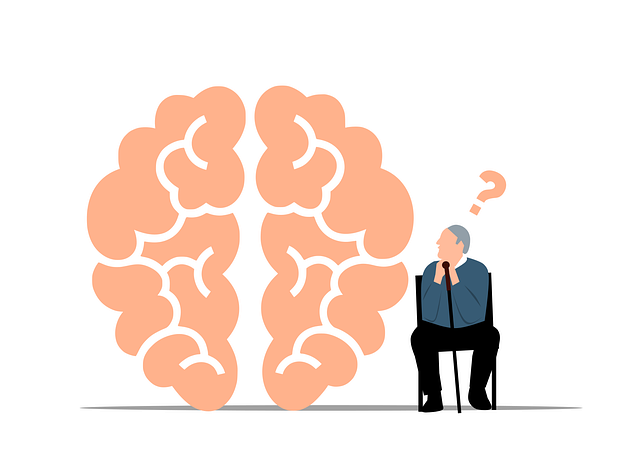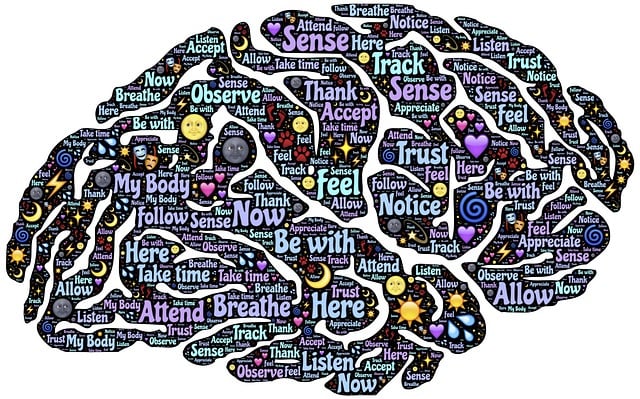Broomfield Cognitive Behavioral Therapy (BCBT) is a proven approach to enhancing cultural competence in healthcare. By addressing negative thinking patterns and providing personalized care tailored to diverse patient backgrounds, BCBT breaks down barriers and promotes equitable access to mental health services. Through interactive training, skill development, and attitude shifts, healthcare providers gain tools like role-playing, case studies, and emotional regulation exercises to improve communication, identify early signs of mental health issues, and prevent burnout, ultimately leading to positive changes in patient interactions and outcomes.
In today’s diverse healthcare landscape, cultural competency training is no longer an option but a necessity. Understanding and respecting different cultures, beliefs, and backgrounds are crucial for delivering effective and empathetic care. This article explores various aspects of cultural competency in healthcare, including the role of Broomfield Cognitive Behavioral Therapy (CBT) in fostering culturally sensitive practices. We provide insights into designing impactful training programs and measuring their success, ensuring healthcare providers can navigate this complex yet essential realm.
- Understanding Cultural Competency in Healthcare: A Necessity in Modern Practice
- The Role of Broomfield Cognitive Behavioral Therapy (CBT) in Cultural Competent Care
- Designing Effective Training Programs for Healthcare Providers
- Measuring and Evaluating the Impact of Cultural Competency Training
Understanding Cultural Competency in Healthcare: A Necessity in Modern Practice

In today’s diverse healthcare landscape, cultural competency is no longer an option but a necessity. It involves understanding and respecting different cultures, beliefs, and values, which are integral to providing quality care. This concept has gained significant importance, especially in communities like Broomfield where a wide array of cultural backgrounds coexist. Healthcare providers who embrace cultural competency can create inclusive environments that foster trust and improve patient outcomes.
For instance, Broomfield Cognitive Behavioral Therapy (BCBT) recognizes the impact of cultural factors on mental health. By integrating community outreach program implementations, BCBT offers tailored therapy sessions addressing specific needs. This approach not only facilitates anxiety relief and stress reduction methods but also ensures that patients from diverse backgrounds receive personalized care. Such initiatives are pivotal in breaking down barriers and promoting equitable healthcare access.
The Role of Broomfield Cognitive Behavioral Therapy (CBT) in Cultural Competent Care

Broomfield Cognitive Behavioral Therapy (CBT) plays a pivotal role in enhancing cultural competency within healthcare settings. CBT is a well-established therapeutic approach that focuses on identifying and changing negative thinking patterns and behaviors, thereby improving overall mental wellness. By integrating this therapy into care frameworks, healthcare providers can better support patients from diverse cultural backgrounds. For instance, it empowers them to address the unique psychological challenges faced by these individuals, ensuring more personalized and effective treatment.
This approach is particularly valuable in managing stress-related issues prevalent in multicultural societies. The Stress Management Workshops Organization has recognized this need and developed programs that incorporate CBT techniques. Additionally, Mental Wellness Journaling Exercises and Guidance can be tailored to respect cultural differences while encouraging self-reflection and emotional regulation. Moreover, Mental Wellness Coaching Programs aim to foster resilience and empower individuals to navigate the healthcare system with greater confidence, reflecting improved cultural competency in care delivery.
Designing Effective Training Programs for Healthcare Providers

Effective training programs for healthcare providers should be designed with a holistic approach that caters to diverse learning styles and needs. These programs must go beyond mere knowledge transfer, focusing on skill development and attitude shifts. Incorporating interactive elements like role-playing scenarios, case studies, and group discussions can enhance engagement and facilitate better retention of information. For instance, Broomfield Cognitive Behavioral Therapy (CBT) training can be tailored to include practical exercises in emotional regulation and positive thinking, empowering providers to address not just the symptoms but also the underlying causes of mental health issues.
Moreover, integrating depression prevention strategies within these training programs is paramount. By teaching providers how to identify early signs of depression and equip them with tools for supportive communication, we can foster a more proactive approach to patient care. Such training should also encourage self-care practices among healthcare workers, as burnout and stress can negatively impact their ability to deliver quality care. Through comprehensive and well-structured programs, healthcare providers can be better equipped to serve diverse populations effectively.
Measuring and Evaluating the Impact of Cultural Competency Training

Measuring the impact of cultural competency training is a multifaceted process that goes beyond mere knowledge retention. Effective evaluation methods should assess how participants translate their learning into practice, fostering genuine changes in patient interactions and outcomes. This includes gauging improvements in communication skills tailored to diverse cultural contexts, such as those provided by Broomfield Cognitive Behavioral Therapy.
One way to achieve this is through pre-post training assessments that compare participant attitudes and behaviors before and after the program. Additionally, implementing feedback mechanisms from both participants and healthcare recipients can offer valuable insights into the tangible effects of training on clinical settings. Incorporating practices like Mindfulness Meditation and Compassion Cultivation Techniques has been shown to enhance emotional well-being promotion techniques among providers, ultimately improving patient care in culturally diverse environments.
Cultural competency training is a vital tool in modern healthcare, ensuring providers can offer empathetic and effective care to a diverse range of patients. As discussed, Broomfield Cognitive Behavioral Therapy (CBT) provides a structured framework for navigating cultural differences, improving patient outcomes and satisfaction. By designing comprehensive training programs that incorporate CBT techniques, healthcare organizations can foster an inclusive environment and bridge the gap between diverse communities and healthcare services. Measuring the impact of this training is essential to identify areas for improvement and ensure continuous development in cultural competency.














